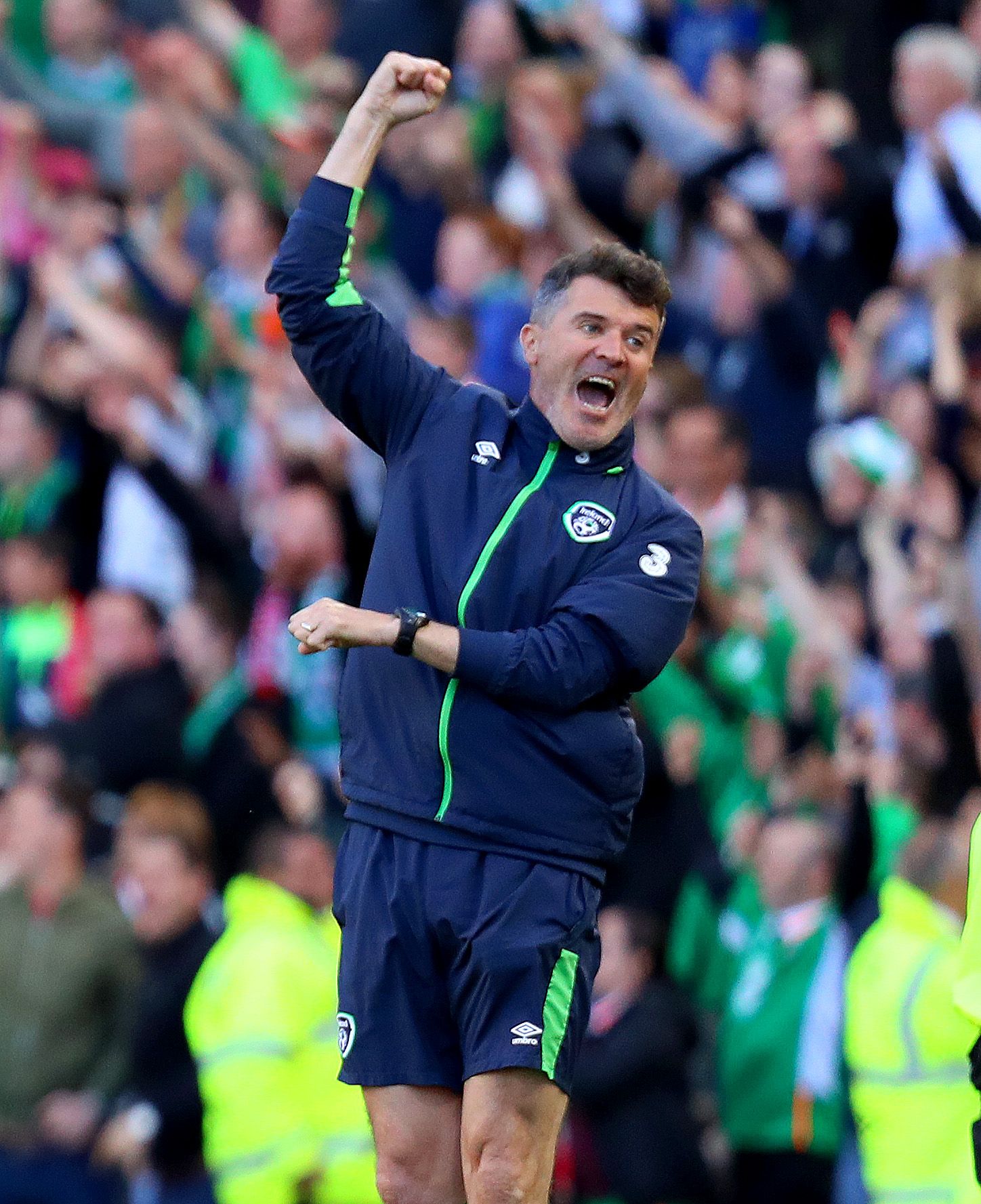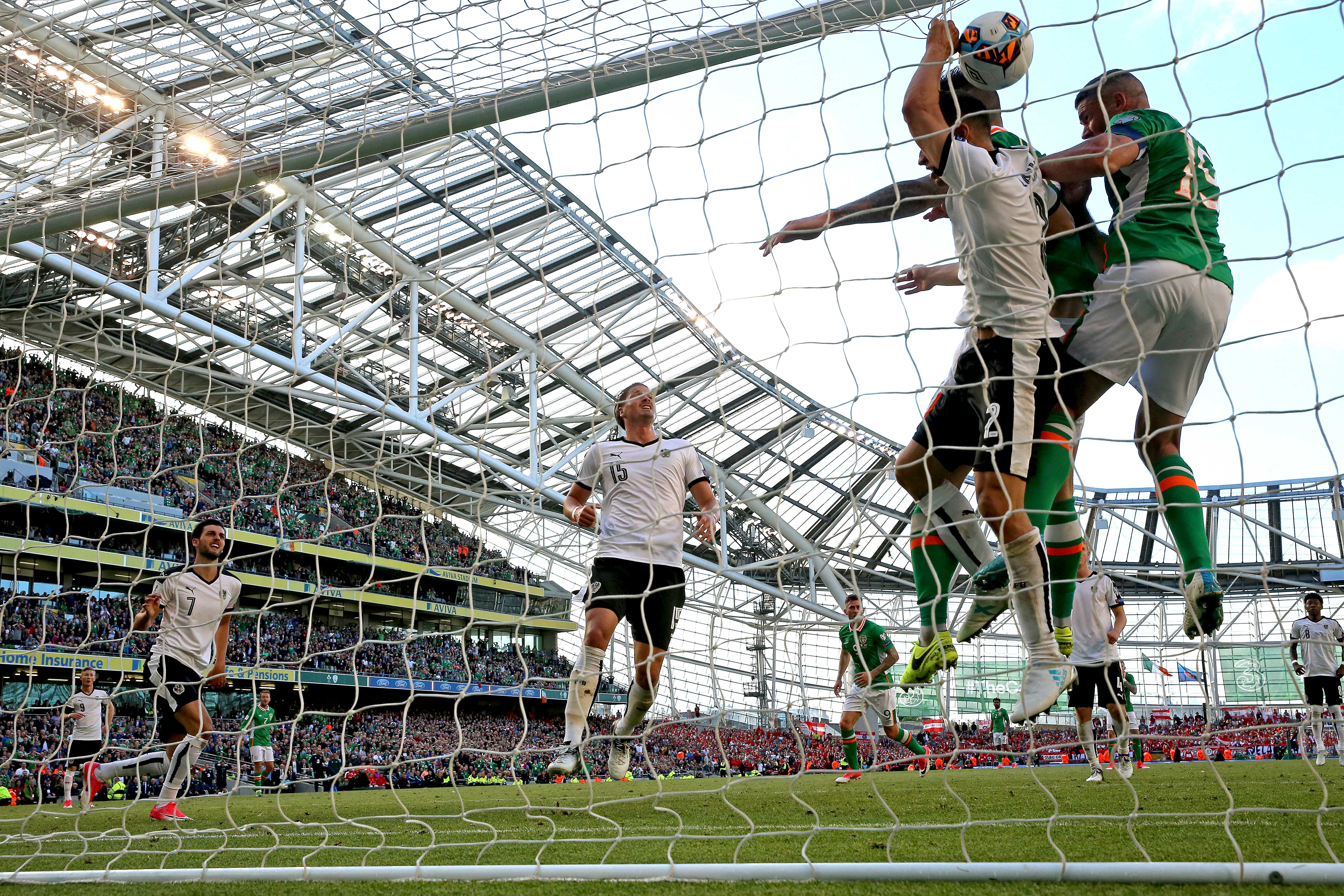

Share
11th June 2017
10:01pm BST

This might have come as some consolation for those watching who would have been relieved to know that the top man was there to witness their pain and, if necessary, to take action on their behalf.
Enduring what could laughably be referred to as ‘the action’ for most of the afternoon was surely a violation of some charter or other designed to protect people from the worst of human suffering.
In the end, of course, all was well. Jon Walters equalised and Ireland provided a comically frenzied final few minutes when they probably should have won the game. Then Wales and Serbia drew and it was hard to know what anyone was complaining about, but here it goes. Ireland are in a strong position to finish in second place. Those who will wonder why Ireland couldn't have approached the game more positively and hope to finish top will be dismissed as fantasists.
Ireland will return in September at the top of the group and it is hard to argue with that position, despite all that happened earlier here.
In the final minutes of the game, Ireland abandoned what I suppose we have to refer to as the pretty stuff as they tried to win the game. If there is a route more basic than route one, Ireland were taking it and in the madness, the crowd came alive as Ireland claimed another heroic draw.

Those final minutes shouldn’t conceal how bad Ireland had been for much of the game. Martin O’Neill’s side had been abysmal in the first half and a little better in the second, even if Austria created the best chances and should have wrapped the game up after the interval.
Until the last five minutes, few among the home supporters could have been enjoying what they were watching, then Walters scored a goal in the finest Irish traditions. His nudge on Aleksandar Dragovic belonged in the same category as Frank Stapleton guiding Gary Stevens and Mark Wright into each other in 1988, Steve McMahon failing to control the ball in 1990 or Niall Quinn barging German defenders all over Ibaraki in 2002. Walters, who had been immense in the thankless role, finished superbly.
But it turns out, there were people other than the supporters who had to watch the game who were nursing a grievance.
Afterwards, the players and management were united in condemning the referee. O’Neill said he was “very poor”. James McClean said Austria had “a 12th man today”.
O’Neill said he didn’t mind that the referee had let the game flow, but that he “seemed to be penalising us a great deal”. He pointed to fouls on McClean as an example.
https://twitter.com/SportsJOEdotie/status/873969105010925569O’Neill had a case when he suggested Ireland should have had a penalty when Walters was fouled, while he also insisted that a goal should have been awarded when Shane Duffy bundled the ball over the line, despising leading with his arm.
O’Neill joked that Andy Gray, the former Sky pundit, would never have scored a legitimate goal if that interpretation of the rules had been taken, even though the reason it hadn’t been taken is because Gray played football thirty years ago. It was just a surprise that O’Neill didn’t cite Nat Lofthouse’s goal in the 1958 FA Cup final as a further reason for allowing Duffy’s goal in 2017.
O’Neill had, at least acknowledged that the referee couldn’t be blamed for Irelands’s poor performance in the first half. He was, he said, “thankful” that Ireland were only a goal behind. Their recovery is credit to the spirit that is in his side, but the major failing on display at the Aviva were not those of the referee, but of Ireland and their management.

For a second successive home game, Ireland were worryingly reluctant to play football or, to be more precise, make advances in an attempt to win.
The victory in Vienna put Ireland in a strong position which has been undermined by the results at home. The draw between Serbia and Wales will conceal that.
O’Neill left Wes Hoolahan on the bench until the last 20 minutes of the game and, in his absence, Ireland surrendered the initiative from kick off against a side that looked like they were well up for surrendering the initiative themselves.
Austria found their way into the game quickly, but even then Ireland found space in front of their back three, even if the players who were finding space didn't make the most of it.
There may have been a plan to get Hoolahan into the game when Austria were tired and the game was stretched, but it might have been better to start with the one player capable of putting Ireland in an attacking frame of mind.
When he came on, Hoolahan may well have been quiet, and he wasn't particularly effective. But Ireland have no player they can rely on creatively, especially as Robbie Brady and Jeff Hendrick - although his role is less clearly defined - aren't providing the quality they're technically capable of.
For that reason, Ireland still need a 35-year-old who, for some reason, always has to prove himself anew. Ireland know what they can do and they know, too, what happens when Hoolahan doesn't play. They can't blame a Spanish referee for that.
Explore more on these topics: